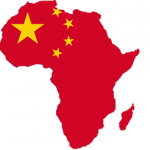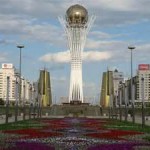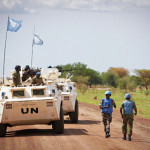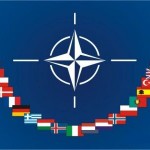
Disclaimer: The posts, views and opinions expressed on this site are completely my own and do not represent the views or opinions of my employer, the Department of Defense (DoD), the Armed Services, nor any part of the Defense Industrial Base.
It has been a long time since I posted anything to Kapok Tree. But there is just so much going on in the world with the Ukraine-Russia conflict, the Israel-Hamas conflict, rising antisemitism, flagrant violations of international law, rising national debt, etc. I thought this might be a good time to lay a couple things on the table that might get us thinking. I do want to talk about the conflict in Gaza and clarify a couple things on proportionality, apartheid, collective punishment and genocide, as well as do something unique by looking at the right of conquest, but I’m not going to get into an analysis of U.S. policy or what the U.S. should or shouldn’t do. I will aim to keep my discussion confined to the topic of international law. Let’s get into it.
The Permanence of Warfare (well, until Jesus comes back)
What is happening with Israel and Hamas is really nothing new considering biblical truth. Warfare and violent conflict have always been a sign of spiritual failure.
James 4:1-3 says:
“Where do wars and fights come from among you? Do they not come from your desires for pleasure that war in your members? 2 You lust and do not have. You murder and covet and cannot obtain. You fight and war. Yet you do not have because you do not ask. 3 You ask and do not receive, because you ask amiss, that you may spend it on your pleasures” (Bible Gateway, NKJV, 1982). Jesus added, “Put your sword in its place, for all who take the sword will perish by the sword” (Matthew 26:52, NKJV). This principle of ‘violence begetting violence’ applies even if the cause is just. There’s no way around it.
Moreover, there is no justification in international law or the Bible for an indiscriminate use of violence to deal with injustice, no matter how bad the injustice. Warfare is not a tool to be taken lightly and used for dubious reasons when other methods of conflict resolution might prove successful. It is important to note that God wants man to live in peace. “If it is possible, as much as depends on you, live peaceably with all men” (Romans 12:19, NKJV). Jesus said to, “Love your enemies, and bless those who curse you” (Mt. 5:44, NIV). It’s good to be a peacemaker.
Having said all of that, warfare is not going away, at least not anytime soon. Both the Council on Foreign Relations and Crisis Watch put out Global Conflict Trackers. The CFR map reveals numerous conflicts ongoing in Africa and the Middle East, not to mention that a genuine threat of genocide exists in the Sudan, Myanmar/Burma, Darfur and Nigeria. Genocide, though, is one of those words that get tossed around and applied to all sorts of conflicts without much thought to the actual definition, often depriving genocide of its true meaning and impact thereof.
What is Genocide?
According to Article 2 of the 1948 United Nations Convention on the Prevention and Punishment of the Crime of Genocide, the term is defined as “any of the following acts committed with intent to destroy, in whole or in part, a national, ethnical, racial or religious group, as such:
- killing members of the group;
- causing serious bodily or mental harm to members of the group;
- deliberately inflicting on the group conditions of life calculated to bring about its physical destruction in whole or in part;
- imposing measures intended to prevent births within the group
- {and] forcibly transferring children of the group to another group
Based upon that strict definition, I do Not believe that genocide is occurring in Gaza, or in Ukraine, or to Native American Indians in the 1800’s for that matter, where disease claimed 75-90% of the dead. I should add that motives are an integral part of proving genocidal intent, and that the convention fails to address what percentage of a group must be impacted to qualify as genocide. Genuine examples of genocide include (but are not limited to) the Holocaust and genocides in Armenia (1915-1917), Rwanda (1994), and Cambodia (1975-1979). In the international laws of armed conflict (LOAC), Intent and Context are everything.
Read more







